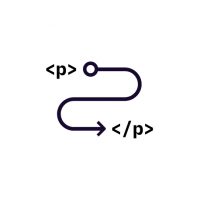MobilityData envisions a world where people can choose ways to travel other than driving solo, whether by walking, cycling, carpooling, or using public or on-demand transit. Our team strives to make it easy and efficient for travelers to access integrated modes of transportation wherever they go. Focus on the traveler experience. By developing and supporting work on mobility specifications. Exemplify openness of data formats, software, and governance. By making the core of our work the development of systemic solutions with open data formats, open tools and an open governance process. Embrace diversity and equity, and continually strive to be inclusive of people, ideas, languages, and cultures. By working with the international mobility community and supporting all travelers’ needs and abilities while increasing diversity within our team. Prioritize individual privacy. By taking a principled approach to evaluating and managing potential privacy risks. Develop specifications that support interoperability. By focusing on projects that enable information exchange between different data sources. Bring stakeholders together from across the industry to build a shared vision. By intentionally seeking out a broad variety of viewpoints to achieve a common vision and to develop solutions. MobilityData-led specifications are open projects that aim to extend and improve official mobility data formats (such as GTFS and GBFS). Transit agencies, software developers, and other stakeholders in the community actively participate in specification improvements and extension development. MobilityData oversees these projects by monitoring the relevant debates, offering expertise, and directly managing extension proposals. We facilitate the creation, adoption, and extension of mobility data formats that are important to our members and that provide meaningful traveler information. Our process is as follows: A need for a specification improvement or extension is expressed by the community or by our team. MobilityData records this need and gives it a priority level according to our members’ interests. When the spark becomes a priority, MobilityData conducts a needs analysis that documents real-world use cases and helps with scoping the project. Our members and the community are consulted so we can consider related use cases. Once needs and scope are defined, MobilityData drafts one or several model options that will allow transcribing these real-world use cases into data. The model options are then submitted to the members and the community for feedback so they can select their prefered option. When consensus has been reached on a model option, MobilityData gathers data producers and data consumers together to facilitate the first implementations, and to ensure that the project is reality-proof. A vote on the project is then held according to the specification amendment process. Once the project is adopted, MobilityData continues to provide support by creating training content around the project and by incorporating any new specifications in open tools such as data validators, grading schemes, or dataset repositories. MobilityData is a membership-driven, non-profit organization. The following provides an overview of our organizational governance. MobilityData funding comes from the support we receive from the mobility community Organizations fund us to conduct specific projects with them Our members fuel us achieving our mission When a need is identified and expressed by the community while being outside our current roadmap, we put together a specific task force with sustainable funding from the community As a non-profit organization, funding is attached to a scope of work and redistributed to support projects that provide systemic solutions to the mobility community.Governance
MobilityData is guided by the following key principles






Our Work Process
Spark Management
Needs Analysis and Scoping
Data Model Drafting
Seeking Implementations
Specification Support
Organizational governance
Funding of the Organization
Projects & Sponsorships
Membership
Working Groups


